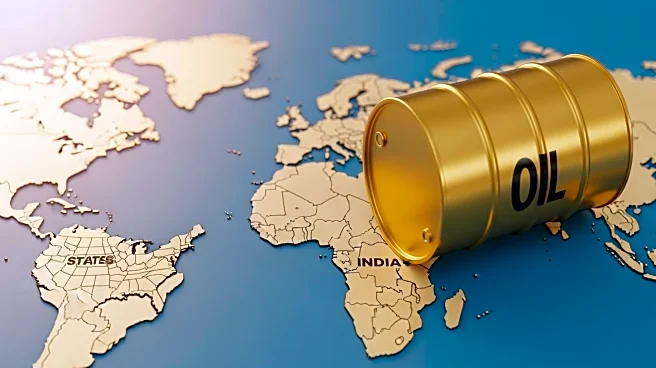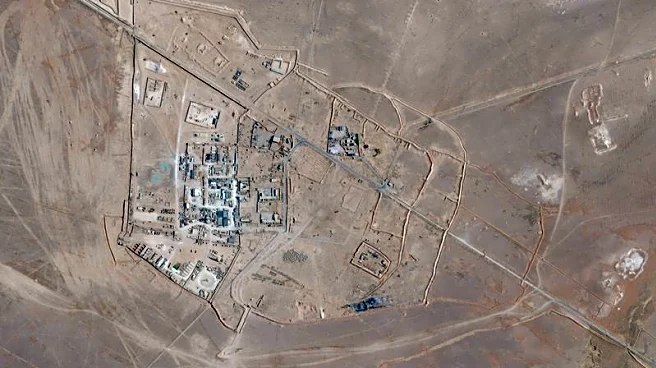What's Happening?
President Trump has announced that Indian Prime Minister Narendra Modi has assured him that India will cease purchasing oil from Russia. This development comes as part of Washington's intensified efforts
to cut off Moscow's energy revenues. The announcement was made during a joint press conference at the White House, where both leaders discussed various bilateral issues. President Trump also mentioned his intention to persuade China to follow suit in halting Russian oil purchases, aiming to further isolate Russia economically.
Why It's Important?
The decision by India to halt Russian oil purchases is significant as it represents a major shift in global energy dynamics. India, being one of the largest consumers of oil, plays a crucial role in the international oil market. This move could potentially impact global oil prices and alter trade relationships. For the U.S., this aligns with its strategic goal to weaken Russia's economic position by targeting its energy sector, which is a vital source of revenue for Moscow. The broader geopolitical implications could lead to increased tensions between Russia and countries supporting the U.S. stance.
What's Next?
Following India's commitment, President Trump plans to engage with China to encourage similar actions against Russian oil imports. If successful, this could lead to a significant reduction in Russia's oil export revenues, further pressuring its economy. The U.S. may also seek to strengthen alliances with other countries to build a coalition against Russian energy exports. Additionally, there could be diplomatic repercussions as Russia responds to these economic challenges, potentially affecting international relations and trade policies.
Beyond the Headlines
This development raises ethical and legal questions regarding the use of economic sanctions as a tool for political leverage. The decision by India and potentially China to halt Russian oil purchases could lead to long-term shifts in global energy alliances and trade patterns. It also highlights the complex interplay between energy security and international diplomacy, as countries navigate the balance between economic interests and geopolitical strategies.










